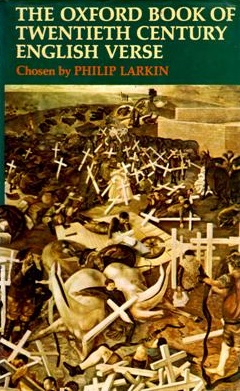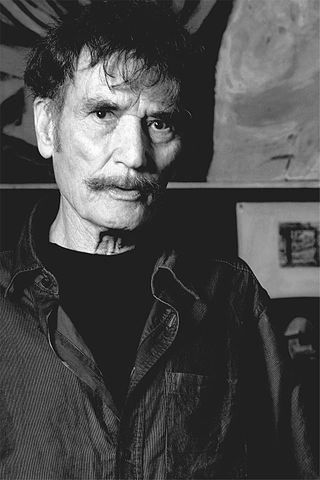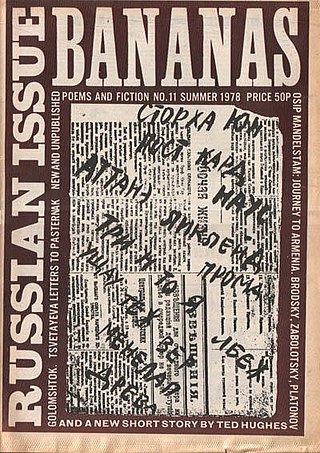
Sylvia Plath was an American poet, novelist, and short story writer. She is credited with advancing the genre of confessional poetry and is best known for The Colossus and Other Poems (1960), Ariel (1965), and The Bell Jar, a semi-autobiographical novel published shortly before her suicide in 1963. The Collected Poems was published in 1981, which included previously unpublished works. For this collection Plath was awarded a Pulitzer Prize in Poetry in 1982, making her the fourth to receive this honour posthumously.

Edward James Hughes was an English poet, translator, and children's writer. Critics frequently rank him as one of the best poets of his generation and one of the twentieth century's greatest writers. He was appointed Poet Laureate in 1984 and held the office until his death. In 2008 The Times ranked Hughes fourth on its list of "The 50 greatest British writers since 1945".
The Movement was a term coined in 1954 by J. D. Scott, literary editor of The Spectator, to describe a group of writers including Philip Larkin, Kingsley Amis, Donald Davie, D. J. Enright, John Wain, Elizabeth Jennings, Thom Gunn and Robert Conquest. The Movement was quintessentially English in character; poets from other parts of the United Kingdom were not involved.

The Oxford Book of Contemporary Verse, edited by D. J. Enright, is a poetry anthology from 1980, published by Oxford University Press. It might be considered one of the "last words" from a founder-member of The Movement, with its comments in the Introduction still in an anti-romantic vein, and that "the editor remains unpersuaded that wit is necessarily evasive in some shabby way or emotionally lowering". It was reissued in 1995 under the title Oxford Book of Verse 1945–1980 (ISBN 0-19-283188-7).

The Oxford Book of Twentieth Century English Verse is a poetry anthology edited by Philip Larkin. It was published in 1973 by Oxford University Press with ISBN 0-19-812137-7. Larkin writes in the short preface that the selection is wide rather than deep; and also notes that for the post-1914 period it is more a collection of poems, than of poets. The remit was limited by him to poets with a period of residence in the British Isles. Larkin's generous selection of Thomas Hardy's poems has been noted for its influence on Hardy's later reputation. On the other hand, he was criticized, notably by Donald Davie, for his inclusion of "pop" poets such as Brian Patten. The volume contains works by 207 poets.
British Poetry since 1945 is a poetry anthology edited by Edward Lucie-Smith, published in 1970 by Penguin Books, with a second and last edition in 1985. The anthology is a careful attempt to take account of the whole span of post-war British poetry, including poets from The Group, a London-centred workshop that Lucie-Smith himself had once been chairman of, following the departure of founder Philip Hobsbaum.
The King's Gold Medal for Poetry is awarded for a book of verse published by someone in any of the Commonwealth realms. Originally the award was open only to British subjects living in the United Kingdom, but in 1985 the scope was extended to include people from the rest of the Commonwealth realms. Recommendations to the King for the award of the Medal are made by a committee of eminent scholars and authors chaired by the Poet Laureate. In recent times, the award has been announced on the birthday of William Shakespeare, 23 April. However, Don Paterson was awarded the medal alongside the 2010 New Year Honours.
Alan Charles Brownjohn was an English poet and novelist. He also worked as a teacher, lecturer, critic and broadcaster.
Philip Dennis Hobsbaum was a British teacher, poet and critic.
The Group was an informal group of poets who met in London from the mid-1950s to the mid-1960s. As a poetic movement in Great Britain it is often seen as being the successor to The Movement.

Peter William Redgrove was a British poet, who also wrote prose, novels and plays with his second wife Penelope Shuttle.

Peter Neville Frederick Porter OAM was a British-based Australian poet.
Vincent Martin Oliver Bell was an English poet who was a key member of The Group, an informal group of poets who met in London from the mid-1950s to the mid-1960s.
Nationality words link to articles with information on the nation's poetry or literature.

Anthony Charles Hockley Smith is a British novelist and playwright from Kew.
Nationality words link to articles with information on the nation's poetry or literature.

Bananas was a British literary magazine that ran for 26 issues from January 1975 until April 1981. It was initially published and edited by the novelist Emma Tennant but from autumn 1979 was published and edited by the poet Abigail Mozley. Tennant chose to name the magazine after the motion picture Bananas (1971), directed by Woody Allen.
Penelope Shuttle is a British poet.
Owen Leeming is a New Zealand poet, playwright, radio presenter and television producer. While working in broadcasting in London and New Zealand in the 1950s and 1960s, he had short stories and poems published in various magazines and journals, and wrote stage and radio plays. In 1970 he was the first recipient of one of New Zealand's foremost literary awards, the Katherine Mansfield Menton Fellowship, after which he published his first collection of poetry. Later in life he settled in France and became a translator. His second collection of poetry was published in 2018, over four decades after his first collection, followed by a collection of selected works in 2021.
Neil Roberts is an Emeritus Professor of English literature at the University of Sheffield. He is the author of critical studies of Ted Hughes, D. H. Lawrence, George Eliot and George Meredith, including the first critical study of Peter Redgrove.







